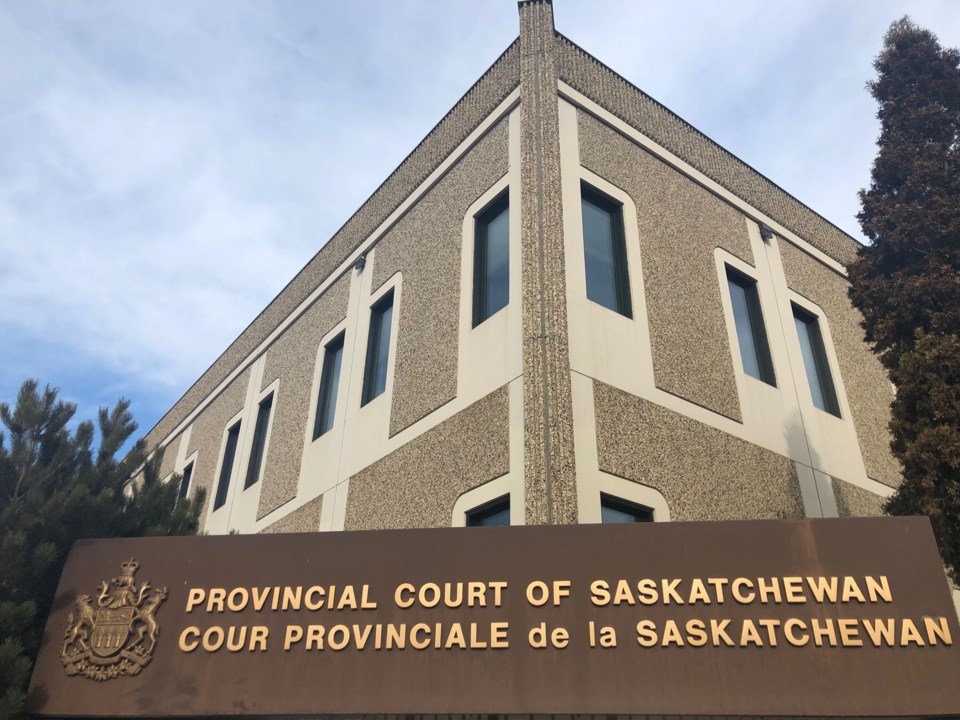MOOSE JAW — Animal Protection Officer (APO) Kimberley Doig and two colleagues visited a Craik-area farm in May 2023 after receiving an anonymous call that there were allegedly dead cattle on the property.
Upon arriving on May 8, the three officers with Animal Protection Services of Saskatchewan (APSS) saw one dead animal in a pasture and a second deceased bovine in a slough. Moreover, they saw other cattle in “thin condition” — their hips, ribs and spine bones protruded — while there appeared to be minimal pasture growth and no supplemental food.
Doig — the lead investigator — called , the owner of the cattle and 36-hectare (90-acre) property, but there was no answer. Miller wasn’t at home when the three APOs visited his residence in Craik, so they returned to the farmyard and left notices for him to call.
“On May 9, I did call him back (after missing his call the night before) to discuss concerns with the cattle, identifying that we did see some deceased cattle as well as minimal pasture growth … ,” Doig said in Moose Jaw Provincial Court on Aug. 13, the first witness of Miller’s six-day trial.
The Crown has charged the cattleman with breaching The Animal Protection Act and the Criminal Code. The act’s section 4 prohibits people from causing animals to be in distress, and section 23 accuses people of failing to comply with a protection order. The code’s section 445(1)(a) accuses people of causing unnecessary suffering to an animal.
None of the allegations have yet been proven in court.
During the conversation, Miller told Doig that one cow died after falling through ice on the slough, a second died from complications during calving, and a third — elsewhere in the yard — likely died of pneumonia.
The APO then issued a corrective action order demanding that he contact a feed extension specialist and a veterinarian and ensure appropriate sources of food and water were available.
Doig and two colleagues returned on May 12 to determine whether Miller had followed the order. He told her that he hadn’t contacted the specialist or veterinarian, although he had removed the cow carcass from the slough. He also showed her bins containing barley while he filled several troughs with feed.
Doig observed more pasture growth, although there was still minimal on-site water. She learned that there was another large dugout on the property, but obstacles prevented the animals from reaching it.
Miller contacted the feed extension specialist, who told him to add more supplemental feed, give the cows rolled barley, increase the volume of grain they were receiving and provide extra hay.
The APO contacted the cattleman on May 18 about whether he provided the extra hay but received no response.
After acquiring a search warrant, on May 24, Doig, other APOs, a licensed veterinarian, a group of cowboys and an RCMP officer visited Miller’s yard intent on removing the animals.
Miller declined to come out to see the seizure.
Doig and the APOs began documenting the yard, noting that in one area, there were no hay bales, mineral supplements, salt licks, recent grain feeds, or pasture growth. In another area, they found feed troughs with some minerals and supplemental food, but it was spoiled.
Meanwhile, in a large shelter, they found a fourth dead cow.
“There was a vast accumulation of feces in this (shelter). No signs of bedding, but numerous feet worth of feces,” Doig recalled.
Doig seized the 55 animals and put them in protective custody because of their condition and because Miller had failed to comply with the order. Meanwhile, Miller eventually came and took photos of his animals and property.
The next day, Doig told Miller that he had to follow more requirements before she released his animals. He agreed to comply, texting her over several days to say he had made the changes.
On May 31, Doig and Don Ferguson, APSS’s executive director, met with Miller, who gave them $27,000 to reacquire his animals and pay the shipping fees. She also gave him a new corrective action order to follow.
A day later, Doig visited Miller’s property and saw sufficient feed, including eight hay bales and plenty of rolled barley.
During cross-examination, Doig said that the anonymous call came from Dennis Muirhead, a fellow APO. She said she took the lead investigating the situation since it was in her area.
Miller’s trial concludes on Monday, Aug. 19.




